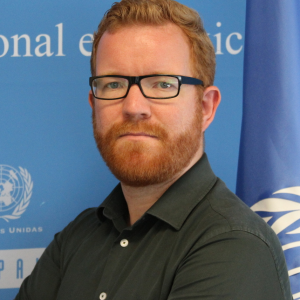Making Jamaican food systems more climate resilient will require investment in training and infrastructure
28 February 2022
Today, the Jamaican Economy Panel (JEP) publishes the ninth round of its discussions focusing, this month, on how climate change may further affect food systems in Jamaica. This discussion is the first in a series of thematic foci on climate change issues.
The 2021 Global Food Systems summit raised the visibility of food systems and drew attention to the ways in which food systems are key to the achievement of the Sustainable Development Goals. In the case of Jamaica, agriculture employs around 16% of the population, which in itself already makes it a crucial economic sector. The sector has however registered lower levels of productivity when compared to Jamaica's other industrial sectors but also compared to other countries in the Caribbean.
The panellists were asked about their perceptions regarding Jamaica's low level of agricultural productivity. They identified three key areas of concern: the quality of capital/technology used in production, the quality of infrastructure and the small scale of farms in Jamaica. Each of these results from long-term path dependence and is not easily changed.
Dr. Crispim Moreira, the Representative of the Food and Agricultural Organization of the United Nations (FAO) in Jamaica, Belize and the Bahamas, points out that "Jamaica faces many challenges. Farmers' infrastructure including water collection, crop storage and irrigation systems, as well as the road infrastructure required to bring crops to market, both require substantial investment. However, the small scale of farms in Jamaica makes it hard for individual farmers to obtain financing for such investments."
Asked about how farmers should best incorporate climate change, the critical point identified by the panellists is on agricultural management. Agricultural management is a broad area that will require substantial training and skills-building. Other areas include addressing the preceding climate sensitivity of much of the relevant infrastructure and improving soil preservation.
Dr. Nadine McCloud, Head of the Economics Department at UWI Mona and co-founder of the JEP, comments that "water management is of first-order importance to agricultural practices and hence agricultural productivity. Yet, its distribution is not always optimal. Farmers should thus invest more in water harvesting and efficient irrigation systems to prepare for the droughts associated with climate change. Simultaneously, they require the appropriate technology to remove and reuse excess water from flooded areas without damaging the topsoil when affected by excessive rainfall. The current low agricultural productivity level and low returns to many farmers mean that increased access to external finance for this critical sector is warranted to render sizeable and sustainable changes in its water usage."
Many panellists see substantial space for government intervention, especially in skills training amongst farmers. Indeed, it is crucial to provide the right tools to farmers to improve their working methods and make themselves more climate resilient. However, on top of that, recognizing that many farms are small and relatively informal, access to finance is another critical area in which the government can play a crucial role. Weather-related insurance is an example of a tool already in place but can be extended further to cover additional people.
Responding to the survey results, Dr. Garry Conille, United Nations Resident Coordinator, shared that "for the United Nations, food systems are absolutely crucial to socio-economic development and the 2030 Agenda. However, I would add that, to be at its most effective, advances to the overall food system must be mindful of Jamaica's proud cultural heritage to be able to contribute most optimally to economic renewal and innovation."
The Jamaican Economy Panel is part of a partnership between the United Nations Resident Coordinator's Office (UNRCO) and the Department of Economics at The University of the West Indies (UWI) Mona. The JEP brings together a select group of economic and public sector experts to address monthly socio-economic questions. These questions help to highlight relevant economic issues and the collective expertise of the panellists.
The full results of this month's discussion are available here.

Dr. Nadine McCloud









